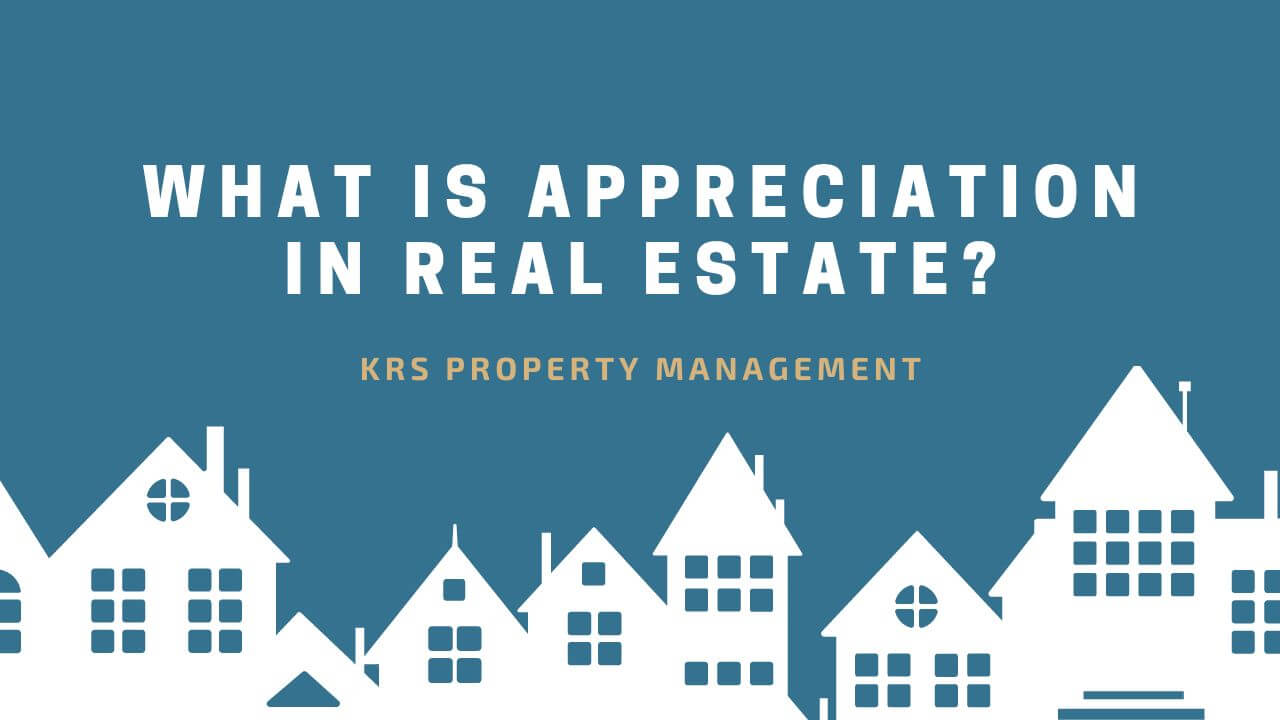
Ever wondered why some rental properties seem to increase in value over time while others remain stagnant? What exactly is appreciation in real estate, and how does it impact landlords? Understanding this crucial aspect of property investment can make all the difference in building a successful rental portfolio.
In this article, we'll delve into the concept of appreciation, exploring what it means for landlords, how it's calculated, and strategies to leverage it effectively. Whether you're a seasoned property investor or just entering into the rental market, grasping the dynamics of real estate appreciation is key to maximizing returns and securing long-term financial stability.
Understanding What Real Estate Appreciation Means
Real estate appreciation simply refers to the increase in the value of a property over time. It's a gradual process and can sometimes fluctuate, even leading to value decreases known as depreciation. There are two primary types of appreciation to be aware of:
Organic Appreciation
This occurs naturally due to factors like supply and demand dynamics and inflation. When demand outstrips supply, property values tend to rise, while the opposite is true when there's an oversupply.
Forced Appreciation
Landlords can actively increase a property's value by purchasing distressed properties and renovating them. Additionally, upgrading a property's features can contribute to its appreciation. Understanding these nuances empowers landlords to strategically enhance the value of their rental properties.

Factors Influencing Real Estate Appreciation
Now that we've explored what real estate appreciation means, let's delve into the factors that influence it, shaping the value of rental properties over time.
Location
Location is a primary determinant of property value because it encompasses various aspects that directly affect residents' quality of life. Desirable locations typically have easy access to essential amenities such as schools, hospitals, shopping centers, and recreational facilities.
Additionally, proximity to major employment centers reduces commute times, making the area more attractive to potential residents. Features like well-maintained infrastructure and attractive natural surroundings also contribute to a location's appeal. Overall, properties in highly sought-after neighborhoods or areas with a strong sense of community tend to experience higher rates of appreciation.
Economic Factors
Economic conditions within a region significantly influence property appreciation. Areas experiencing robust economic growth often see increased job opportunities, rising incomes, and a growing population. As more people move to the area for employment, the demand for housing rises, leading to higher property values.
Conversely, economic downturns can have the opposite effect, causing job losses, reduced incomes, and decreased demand for housing. Economic stability and growth potential are essential considerations for landlords seeking to invest in properties poised for appreciation.

Infrastructure and Development
Investments in infrastructure and development projects can significantly impact property appreciation. Improvements such as new transportation networks, highways, public transit systems, and local amenities enhance accessibility and convenience, making an area more attractive to residents.
Additionally, the development of commercial centers, entertainment venues, and cultural amenities can contribute to a vibrant local economy and increase property values. Landlords should keep an eye on planned or ongoing infrastructure projects in the areas where their rental properties are located, as these investments often signal potential for future appreciation.
Supply and Demand Dynamics
The balance between housing supply and demand is a fundamental driver of property appreciation. When the supply of homes is limited relative to the number of potential buyers, known as high demand, competition among buyers increases, leading to bidding wars and higher sale prices. This scenario often occurs in densely populated urban areas where land availability is limited.
Conversely, an oversupply of homes relative to demand can lead to a buyer's market, where sellers may need to reduce prices to attract buyers. Understanding the local housing market dynamics and monitoring inventory levels can help landlords anticipate trends in property appreciation.
Demographic Trends
Changes in population demographics can influence housing demand and property appreciation. Factors such as population growth, migration patterns, and shifts in household composition can drive demand for housing in certain areas. Landlords who understand demographic trends can tailor their rental property offerings to meet the evolving needs of potential tenants, thereby positioning their properties for appreciation.

Interest Rates
Fluctuations in interest rates impact borrowing costs for investors and homebuyers alike, which in turn affects housing affordability and demand. When interest rates decline, borrowing money to purchase real estate becomes more affordable, thus stimulating demand and driving property prices higher. Conversely, when interest rates rise, borrowing costs increase, leading to reduced affordability and potentially dampening demand for housing.
Landlords should monitor changes in interest rates and consider their implications for the housing market when making investment decisions. Additionally, lower interest rates may incentivize property owners to refinance existing mortgages or undertake renovation projects, further influencing property appreciation.
Advantages of Real Estate Appreciation for Investors
As a real estate investor, understanding and leveraging real estate appreciation can offer several benefits:
- Improved Access to Liquidity via HELOCs: A rise in property value enhances your eligibility for Home Equity Lines of Credit (HELOCs). Lenders favor properties with greater equity, providing you with additional financial flexibility while retaining ownership of the property.
- Increased Passive Income Potential: As property values rise, you can command higher rents, leading to increased monthly passive income, particularly in high-demand rental markets.
- Enhanced Capital Appreciation: With property appreciation, your potential profits upon selling the property grow. This long-term investment strategy can yield substantial returns when you decide to divest.
Bottom Line
Real estate appreciation offers investors numerous advantages. With rising property values, investors can enjoy increased passive income potential through higher rental returns and enhanced capital appreciation upon selling. Additionally, the boost in property value improves access to liquidity via options like HELOCs, providing financial flexibility while retaining ownership.
Partnering with a property management company like KRS Holdings further enhances these benefits. With our expertise in property management, we can help investors maximize rental income through efficient property maintenance, tenant acquisition, and strategic market analysis. Contact us today to learn more!






